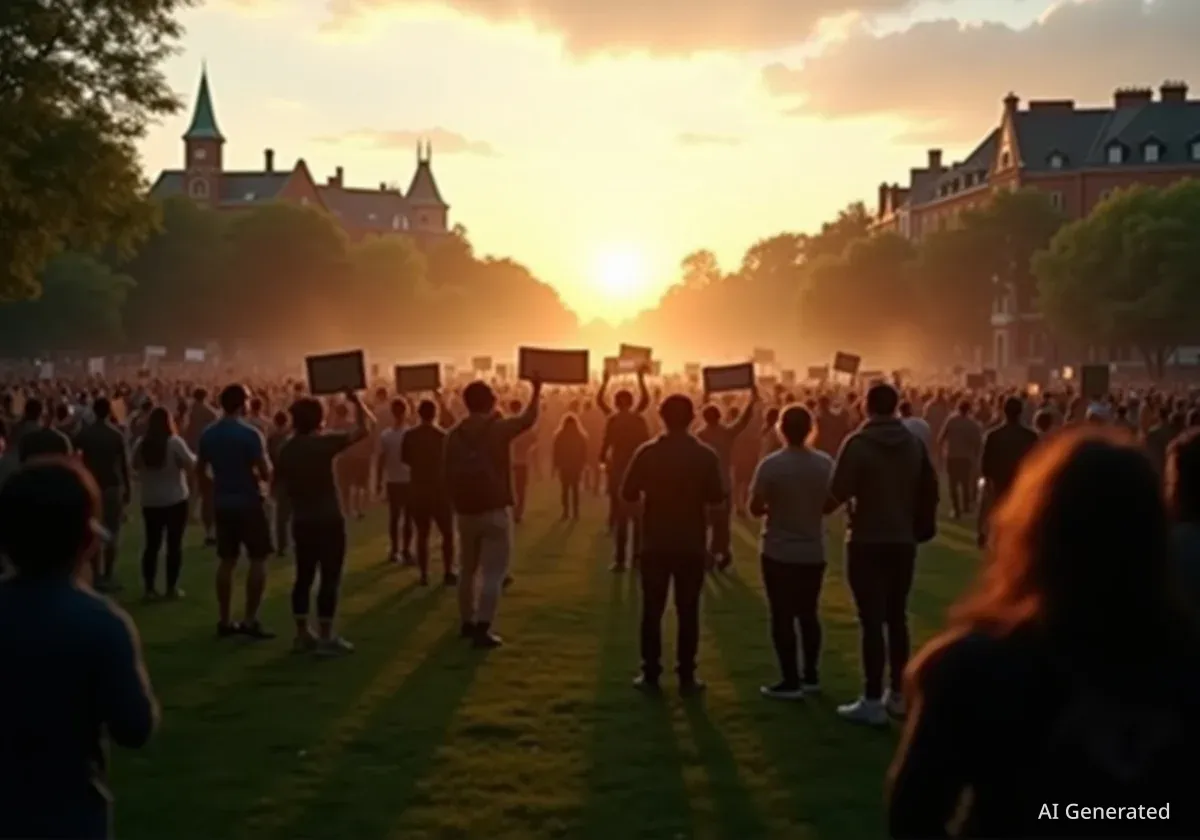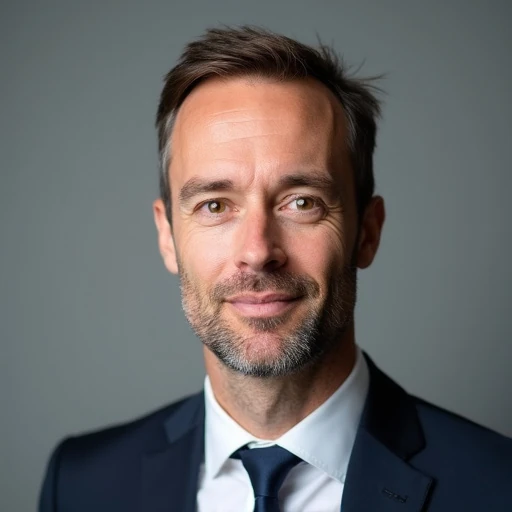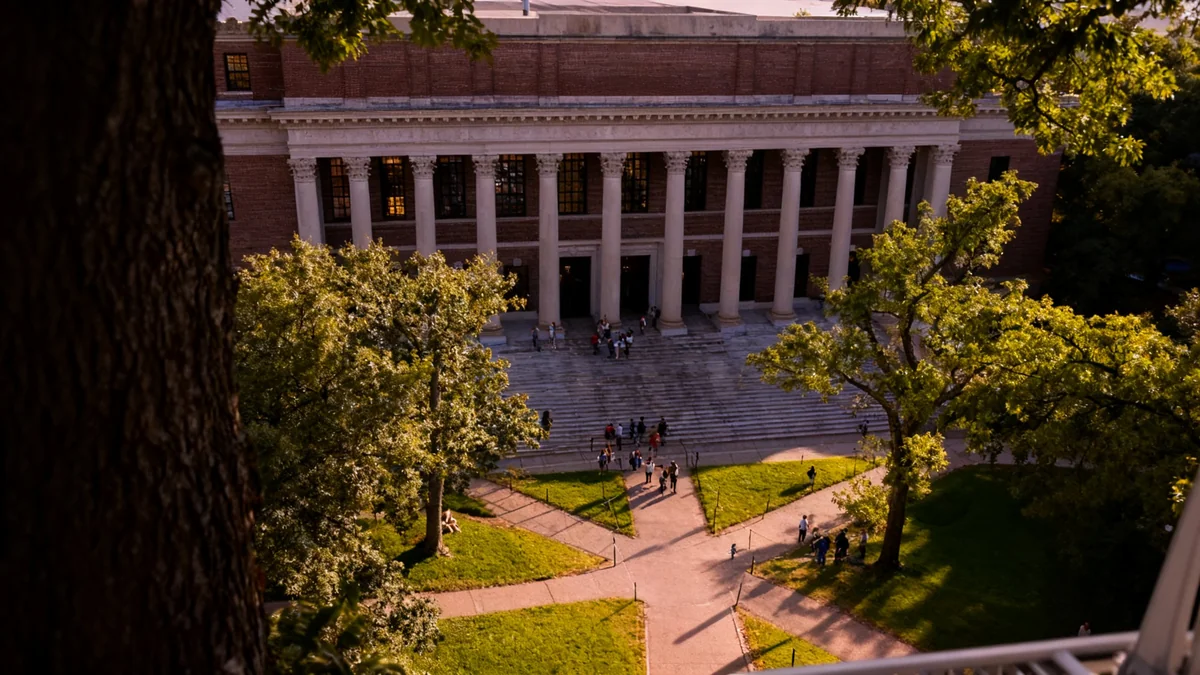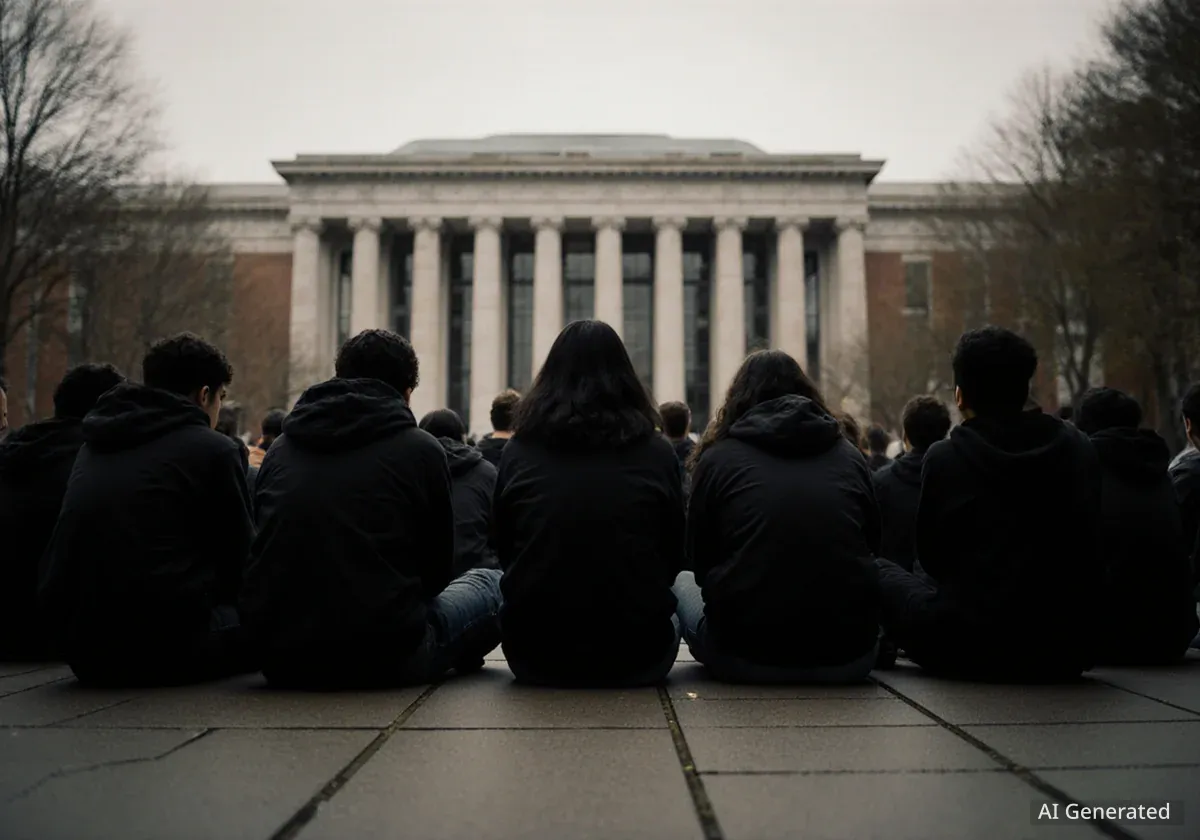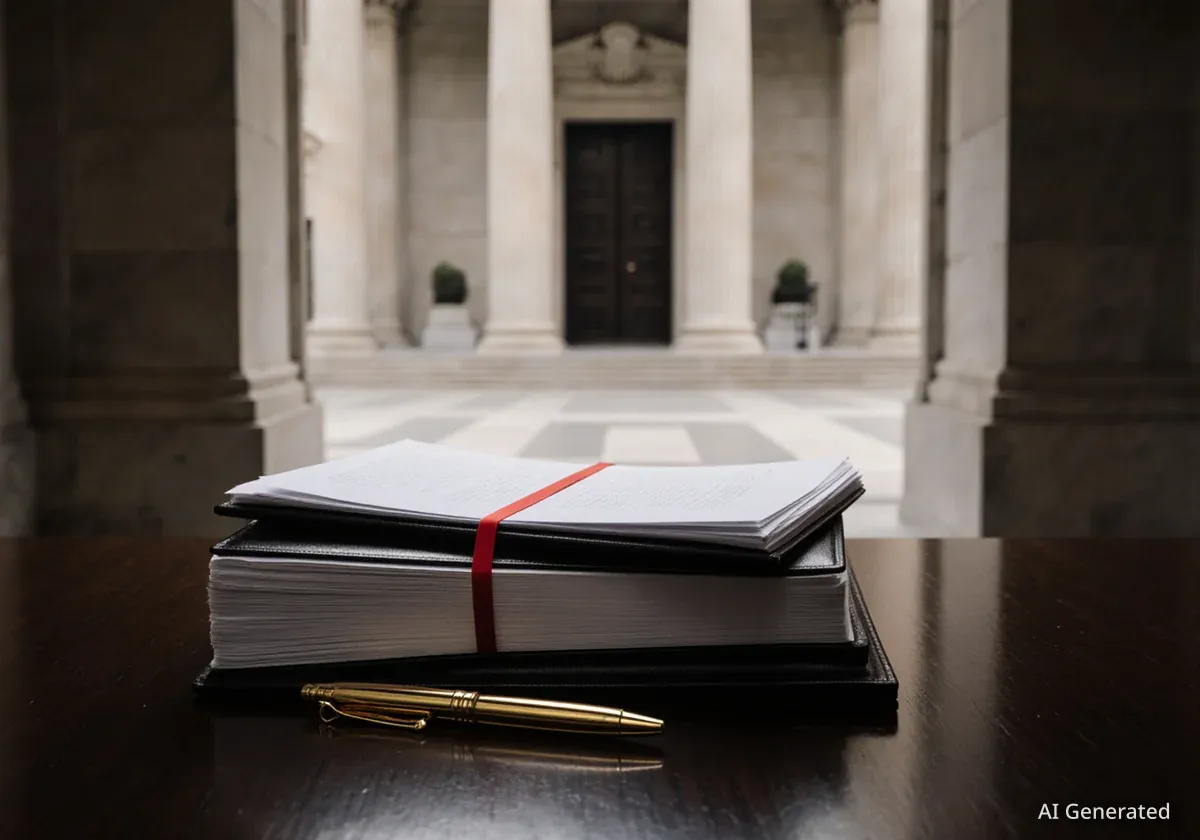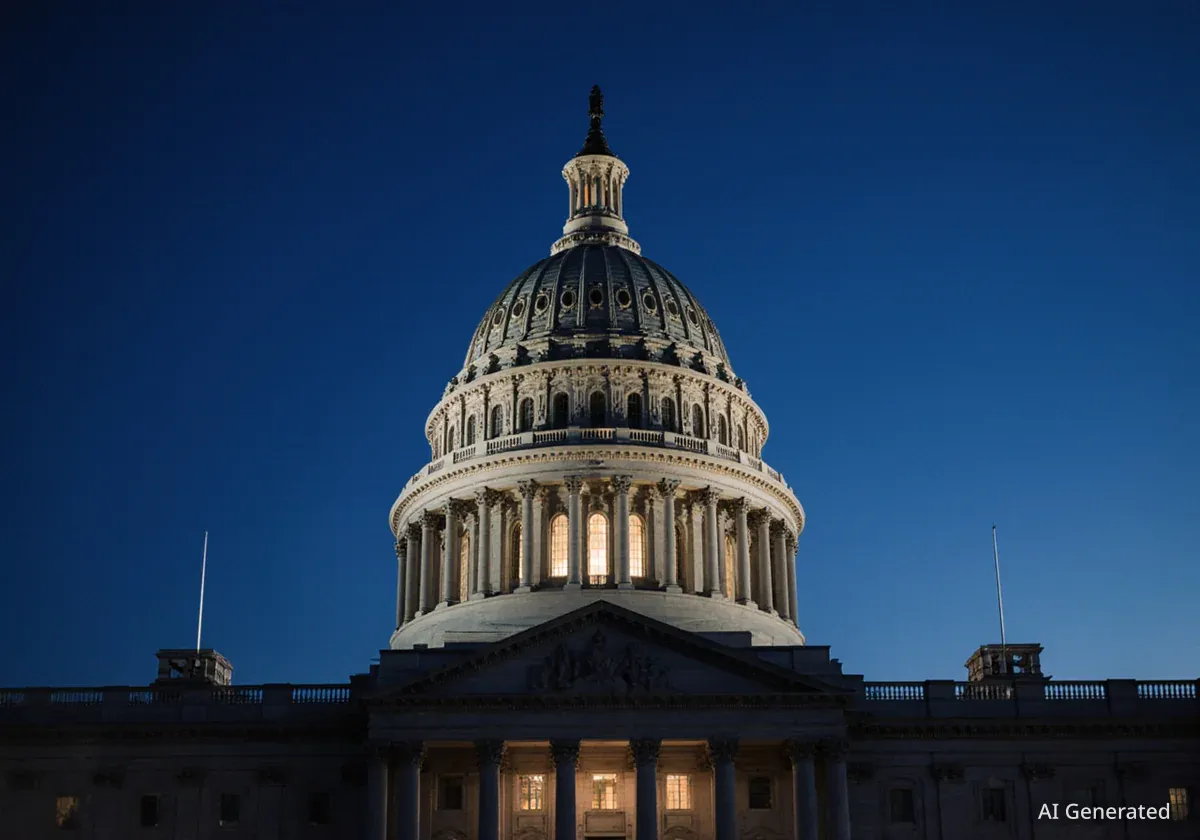A significant number of demonstrators gathered on the North Green of the University of Delaware campus in Newark on Saturday, October 18, 2025. The event, identified by participants as a 'No Kings' protest, was organized to express opposition to the policies of the Trump administration.
The demonstration began in the early afternoon, with participants filling the central campus green space before expanding to line parts of Delaware Avenue, a major thoroughfare adjacent to the university. The event was part of a series of similar protests held across the state, including in Wilmington and Georgetown.
Key Takeaways
- A protest titled 'No Kings' took place at the University of Delaware on October 18, 2025.
- The demonstration was organized in opposition to the Trump administration.
- Protesters assembled on the North Green and along Delaware Avenue in Newark.
- The event was peaceful and involved students, faculty, and local residents.
- Similar protests were concurrently held in other Delaware cities like Wilmington and Georgetown.
Demonstration Unfolds on Campus
On Saturday afternoon, the North Green at the University of Delaware transformed into a center for political expression. Protesters, including students, university staff, and residents from the Newark area, came together for a demonstration against the current federal administration. The gathering remained peaceful throughout the day.
Participants carried signs with various messages centered on themes of democratic principles and civil liberties. The event's name, 'No Kings,' was frequently referenced by speakers, who explained it as a rejection of perceived executive overreach and a call to protect constitutional norms. Chants were audible but the overall atmosphere was one of organized dissent rather than confrontation.
The protest was well-organized, with designated speakers and marshals helping to guide the crowd. By mid-afternoon, the group had grown large enough to occupy a substantial portion of the North Green, a prominent open space on the university's main campus.
A Statewide Day of Action
The Newark protest was not an isolated event. According to organizers, it was coordinated with similar demonstrations in Wilmington and Georgetown on the same day. This suggests a broader, statewide effort to voice opposition to the administration's policies, mobilizing citizens across Delaware's three counties.
Voices from the Protest
To understand the motivations behind the demonstration, reporters spoke with several attendees. Their reasons for participating were varied, reflecting a range of concerns about the administration's direction.
Student and Faculty Perspectives
Many students cited concerns over education policy, environmental regulations, and social justice issues as their primary motivation for attending. A student organizer, who identified herself as Sarah Jenkins, a political science major, shared her view.
"We are here to stand for the principles this country was founded on," Jenkins stated. "The 'No Kings' theme is about reminding our elected officials that they serve the people, not the other way around. It’s about accountability and ensuring that no single person is above the law."
Faculty members were also present, with some expressing solidarity with the students. Dr. Alan Price, a history professor at the university, said he was there to support the students' right to free assembly and speech. "A university campus should be a place where ideas are debated and dissent is voiced peacefully. It's an essential part of the academic and civic experience," he commented.
University Policy on Campus Protests
The University of Delaware has an established policy regarding demonstrations on campus property. The policy generally protects free speech and the right to peaceful assembly, provided that events do not disrupt university operations or endanger the safety of the community. Campus police were present to monitor the situation but maintained a distance.
Logistics and Public Response
The demonstration's visibility was heightened as protesters moved to the edges of the campus along Delaware Avenue. This strategic positioning ensured their message reached a wider audience beyond the university community, including passing motorists and pedestrians.
Managing the Demonstration
The presence of protesters along the busy roadway required coordination with local law enforcement to ensure safety and manage traffic flow. Newark Police and University of Delaware Police were on site, and while no roads were closed, they helped facilitate pedestrian movement and prevent disruptions to traffic.
The university administration issued a brief statement in the late afternoon, acknowledging the event.
"The University of Delaware is committed to upholding the principles of free expression for all members of our community," the statement read. "We support the right of our students, faculty, and staff to engage in peaceful and lawful protest. The safety of our campus community remains our highest priority."
Public reaction from passersby was mixed, with some drivers honking in support while others expressed disapproval. Local businesses along Main Street, located near the campus, reported normal operations with minimal disruption.
Broader Implications of the 'No Kings' Movement
The 'No Kings' slogan appears to be part of a larger national sentiment focused on constitutional checks and balances. Political analysts suggest that such grassroots movements often gain traction on college campuses, which have historically been centers for political activism and social change.
The choice of a university campus for the protest highlights the engagement of young people in the national political discourse. Organizers emphasized that their goal was not just to protest but also to encourage voter registration and civic participation among their peers. Registration tables were visible at the edge of the protest area.
The peaceful nature of the demonstration in Newark, as well as the parallel events in Wilmington and Georgetown, underscores a coordinated effort to create a platform for dissent across Delaware. The long-term impact of these protests will depend on their ability to maintain momentum and influence public opinion and policy decisions in the future. As the day concluded, organizers pledged to continue their advocacy through future events and community outreach.
